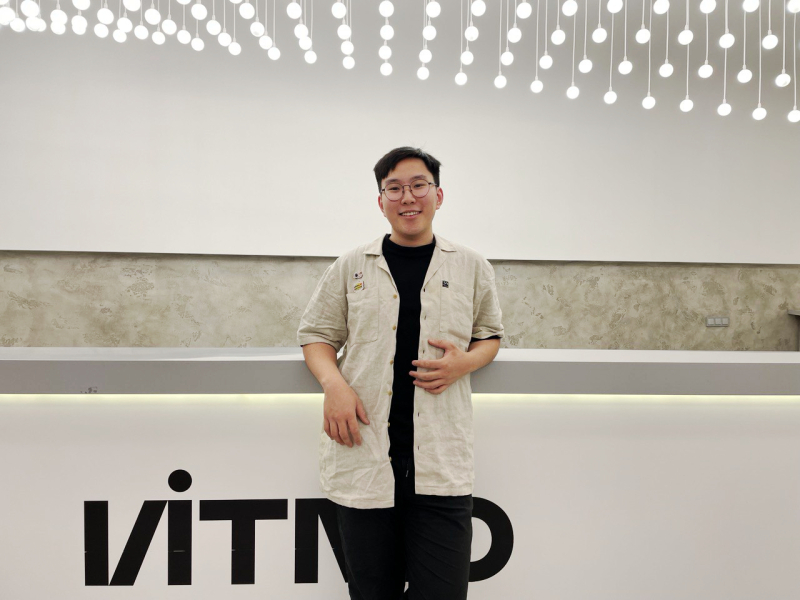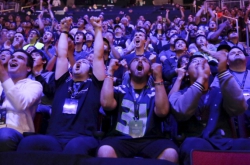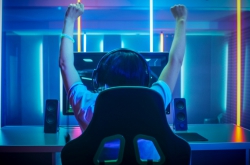— To start with, how did you get the idea for the game?
— Honestly, it was all quite sudden. Grigory Spirov, the future co-founder, texted me at 9 AM and told me about the English game Contexto and that it would be cool to make a Russian version of it. The game runs a lot like “Hot or Cold”: the closer the player’s guess is to the correct answer, the higher their guess is in the ranking. I used to work as an NLP Engineer at ITMO’s National Center for Cognitive Technologies, so, as a researcher I was interested in observing how a particular algorithm relates one word to another.
So Grigory and I started working on the project that very day, and in 11 hours we had a prototype ready. Right before launch, Aitalina Krivoshapkina came in to help with design – she had literally one hour to try and make it in any way presentable.That’s how our team of three came into being.
— Can you explain how the algorithm works? When playing the game, it is not obvious as to how it picks the words.
— We initially had a specific goal to create a game based on associations, so between word2vec and Glove (the most popular and simplest algorithms) we chose the latter. Glove groups together words that are used in a similar context. For example, one day the word was “водопад” (waterfall), but the closest to it was not, as you might have guessed, “вода” (water), but “ниагарский” (Niagara) instead. This added challenge is what makes the game fun.
The game’s main menu. Source: guess-word.com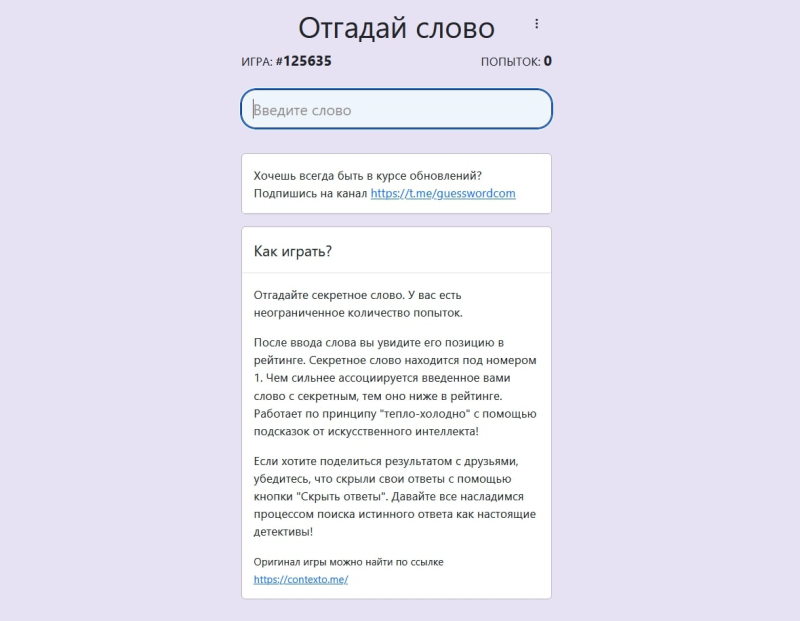
— What words did you upload into the algorithm?
— We use works of fiction as our dataset, with more than a hundred thousand of the most popular words in the Russian language.
— Why do you think your game blew up so quickly?
— Indeed, we counted around thirty thousand unique sessions during the first week. We only used a single Twitter account for promotion, which makes it even more remarkable. But on the very first day we asked Natalia Davydova, the founder of an online community for junior and frontend programmers (with over 15,000 followers), to check out our game. She liked our tweet, and then we had 24,000 new users overnight. We were not ready at all, our server crashed, and we had to re-launch.
Now we already have more than a hundred thousand sessions, with two thousand new players on average joining every day. What surprises us the most is that the people learn of the game all on their own, since we did not promote it at all. For instance, I did not tell my friends anything about the game and they still found out. Turns out, some Telegram channel made a post about us.
— Have you considered promoting or monetizing the game?
— Our Telegram channel, where we post daily statistics and hints, has over two thousand subscribers already. The players can also use it to share their results, suggest improvements, and provide feedback.
As for monetization, we are not yet clear on what elements of the game to monetize. We sold ad space for three days as a test and, all in all, made decent money. But it does not match our vision for the game, as we would prefer for it to stay ad-free. Even if some paid options are added, it will not affect the core gameplay. Only additional features can be sold, like the option to create your own private lobbies with you choosing the word that people have to guess. If the players do not like it, we will come up with something else. For now, we simply set up a Boosty page for those who want to support the project.
A meme made by one of the players that was sent to the developers. Source: t.me/guesswordcom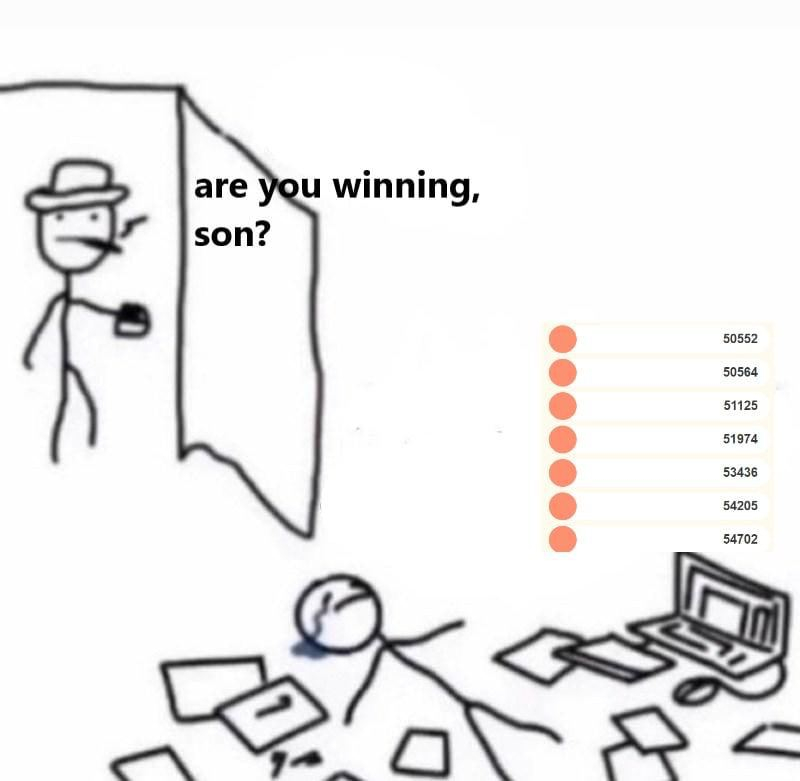
— What is player feedback like, what features do they want to see added?
— Our users are very active when it comes to providing feedback and pitching new ideas. All their suggestions can be divided into four groups: improving the algorithm, expanding its dictionary, adding difficulty levels, and making it possible to play more often, including replaying past games. But we are currently focused on improving the current state of the game: the interface needs to be more user-friendly, and the game’s visual identity needs to be finalized.
Several users also offered to create a Telegram bot for us along with a mobile app, and we are already working with some of them. Actually, we are always ready to share our API with anyone who wants to base their pet project around it.
— Are you going to launch any new features soon?
— We released a beta test for a new version of the game just the other day, with design changes and an added option to create the private lobbies we mentioned. That way you can play exclusively with your friends. Incidentally, ten thousand users launched the new version on its release day.
We are also receiving some constructive feedback on the flaws of the algorithm, so we will for sure need to change it. As of yet we are unsure as to how, so we are going to experiment a bit. For instance, we want to try out other technologies for vectorizing words, such as fast-text, BERT, and other transformers. But BERT is too popular and eats up a lot of memory and processing power. There is also the idea to launch multiple algorithms simultaneously, but we are not ready to unveil that one just yet.
